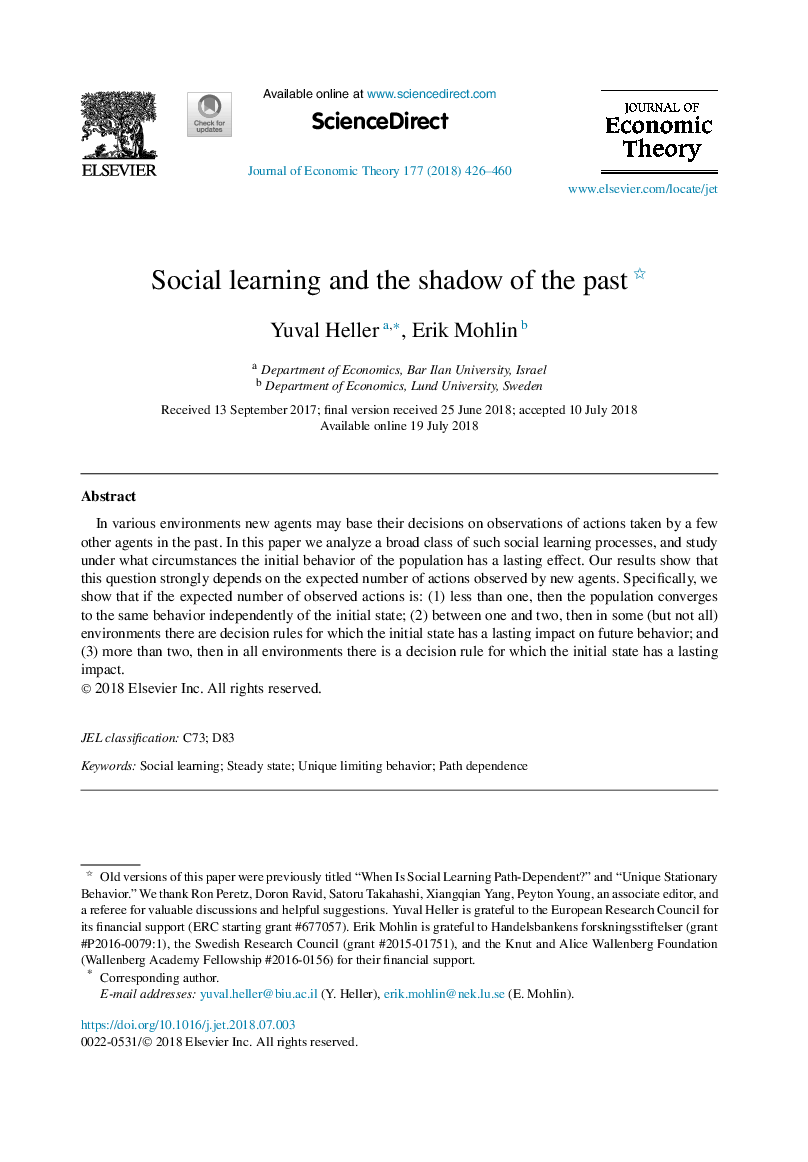| Article ID | Journal | Published Year | Pages | File Type |
|---|---|---|---|---|
| 7359003 | Journal of Economic Theory | 2018 | 35 Pages |
Abstract
In various environments new agents may base their decisions on observations of actions taken by a few other agents in the past. In this paper we analyze a broad class of such social learning processes, and study under what circumstances the initial behavior of the population has a lasting effect. Our results show that this question strongly depends on the expected number of actions observed by new agents. Specifically, we show that if the expected number of observed actions is: (1) less than one, then the population converges to the same behavior independently of the initial state; (2) between one and two, then in some (but not all) environments there are decision rules for which the initial state has a lasting impact on future behavior; and (3) more than two, then in all environments there is a decision rule for which the initial state has a lasting impact.
Related Topics
Social Sciences and Humanities
Economics, Econometrics and Finance
Economics and Econometrics
Authors
Yuval Heller, Erik Mohlin,
